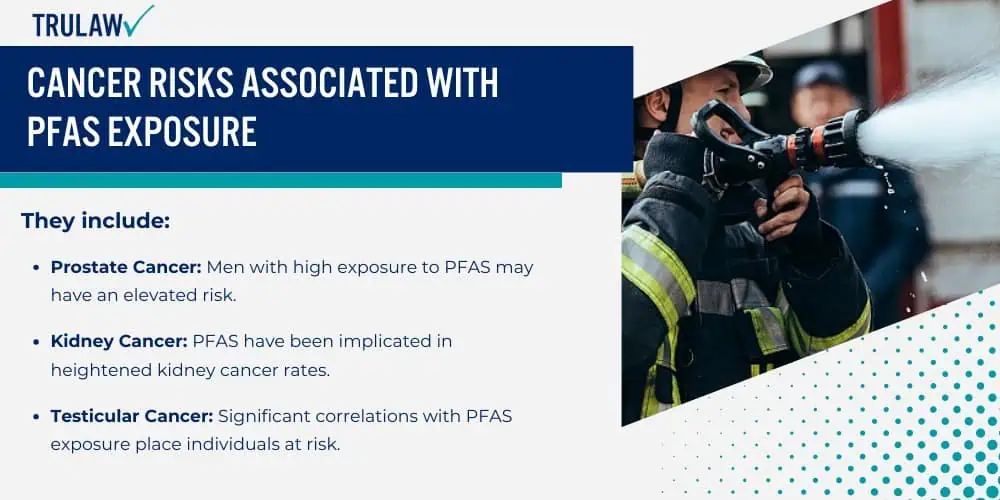Exposure to PFAS chemicals, often referred to as forever chemicals, has been significantly associated with an increased risk of various types of cancer.

PFAS are a group of man-made toxic chemicals that have been widely used in products such as Aqueous Film Forming Foam (AFFF), which is used to fight fires.
Types of Cancer Linked to PFAS in AFFF
Studies indicate that PFAS exposure from AFFF is linked to several types of cancer.
They include:
- Prostate Cancer: Men with high exposure to PFAS may have an elevated risk.
- Kidney Cancer: PFAS have been implicated in heightened kidney cancer rates.
- Testicular Cancer: Significant correlations with PFAS exposure place individuals at risk.
- Bladder Cancer: There’s a noted concern for increased bladder cancer risk.
Other Potential Health Effects of PFAS Chemicals
Exposure to PFAS chemicals has been linked to a range of health issues beyond cancer.
These substances can disrupt various bodily functions and cause long-lasting effects.
In addition to cancer, PFAS exposure can lead to a variety of adverse health effects:
- Thyroid Disease: PFAS chemicals can disrupt thyroid function.
- Other Health Risks: They may include changes in cholesterol levels and increased risk of obesity.
- Developmental Effects: PFAS exposure can affect the growth, learning, and behavior of infants and older children.
- Immune System Effects: Some studies have shown PFAS impact on immune system health.
Avoiding exposure to PFAS chemicals is essential as they can persist in the environment and the human body for extended periods.
They can accumulate and stay in the human body for long periods, leading to persistent health risks.







